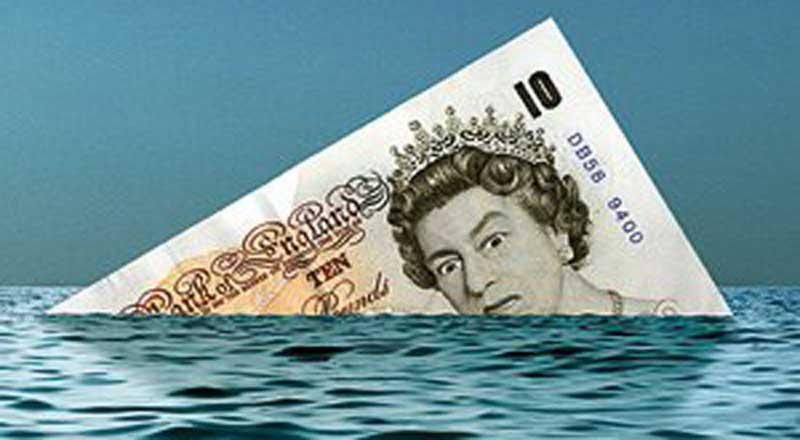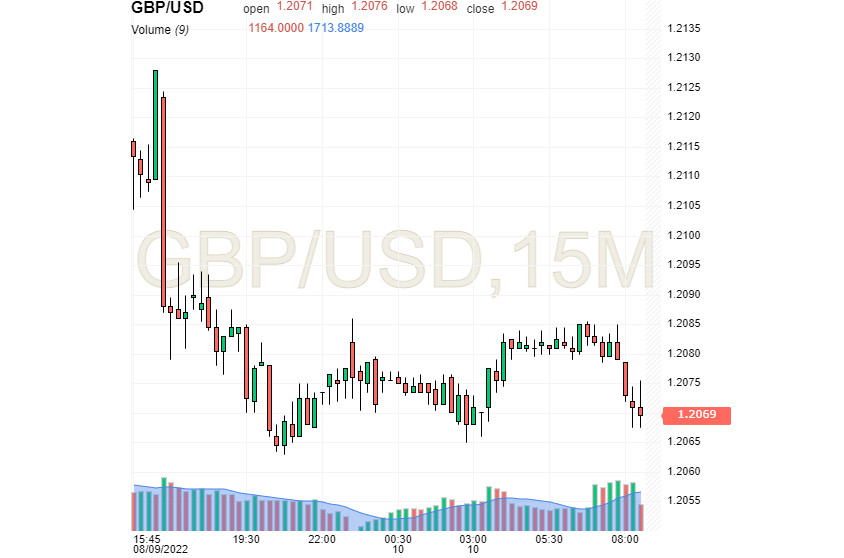
The British currency remains relatively calm this week, expecting, along with the US, a report on the consumer price index in America. An additional factor of pressure for the pound was the thunderclouds on the political horizon of the UK, due to the election of the prime minister.
Markets are focused on the election race in the UK, the favorite of which is Liz Truss, the foreign secretary. She claims the place of Boris Johnson, who was forced by the Conservative Party to resign as prime minister and its leader. The important points of the election program of Truss were the rejection of family benefits and tax cuts for citizens. In addition, the Minister of Foreign Affairs proposed to limit the influence of the Bank of England on the country's economy.
Many analysts assess the current political situation in the UK as a crisis, which is exacerbated by economic turmoil. Recall that last week, the BoE raised interest rates by 50%, but this had little effect on inflation in the country. It should be noted that the central bank began the fight against inflation in December 2021 and since then has systematically raised rates at each of the subsequent six meetings. As a result, by the beginning of the summer, inflation in the UK amounted to 9.4%. According to the BoE's forecasts, it will peak in October, soaring to 13.3%. Against this background, by the end of 2022, the UK economy will enter a recession that will last five quarters.
However, many experts disagree with this view. Currency strategists at Oxford Economics assess the risks of a recession as small, despite the current instability. According to economists, in 2023 the key rate cut by the BoE is more likely. At the same time, the central bank's actions aimed at reducing rates are slowing down economic activity in the UK. Against this backdrop, the GBP is under tremendous pressure, risking to collapse, currency strategists at Societe Generale believe.
At the end of July, the British currency showed growth, waiting for the Federal Reserve to abandon the overly aggressive tightening of the monetary policy. However, this did not happen. On the contrary, the US central bank is quite resolute, and it is supported by the hawkish mood of US officials. Against this background, the pound's recovery was interrupted, releasing the latter into free swimming on the waves of the financial market. The pound has slipped 10% against the dollar since the beginning of this year, placing it in the top three worst currencies among the G-10. The reason is the low pace of rate hikes by the BoE compared to the Fed's anticipatory actions.
According to analysts at Societe Generale, in the near future, the pound will fall to its lowest level since the collapse at the beginning of the COVID-19 pandemic. Additional pressure on the pound is created by the BoE's recent announcement about a possible recession and growing expectations of another rise in interest rates in the US (by 75 bps). In such a situation, the pound may sink to 1.2000 and below. If the bearish trend for the pound continues, the GBP/USD pair will fall to 1.1400-1.2000, according to Societe Generale.
The pair was close to 1.2100 on Tuesday, August 9 and even peaked at 1.2130, but failed to consolidate on these positions. The GBP/USD pair was trading in the range of 1.2069-1.2070 on Wednesday morning, August 10. At the same time, the greenback showed mixed dynamics, as market participants expect July reports on the US consumer price index.

According to updated forecasts for the British currency, in the short term it will maintain support against the US. However, the high likelihood of interest rate cuts by the BoE in 2023 is putting downward pressure on the pound. At the same time, according to analysts at Oxford Economics, in the near future the central bank will raise interest rates amid galloping inflation, thereby contributing to the pound's growth. However, in the long term, the BoE may revise the current monetary strategy, according to Oxford Economics.
UK GDP data for the second quarter of 2022 will be released this Friday, August 12. According to preliminary estimates, this indicator is expected to slow down to 2.8% in annual terms. Against this background, pessimism dominates the markets. In addition, on a quarterly basis, GDP is projected at -0.2%. Earlier, an increase of 0.8% was recorded in the first quarter of 2022. If the current GDP turns out to be weaker than expected, then the pound's decline is inevitable.
The pound may be supported by the dollar's retreat across the entire spectrum of the market. In such a situation, the pound is able to stay afloat. According to preliminary forecasts, in the third quarter of 2022, the GBP/USD pair will remain close to 1.2000 and may reach 1.2200, and by the first quarter of 2023 it will rise to 1.2300.
 English
English 
 Русский
Русский Bahasa Indonesia
Bahasa Indonesia Bahasa Malay
Bahasa Malay ไทย
ไทย Español
Español Deutsch
Deutsch Български
Български Français
Français Tiếng Việt
Tiếng Việt 中文
中文 বাংলা
বাংলা हिन्दी
हिन्दी Čeština
Čeština Українська
Українська Română
Română

